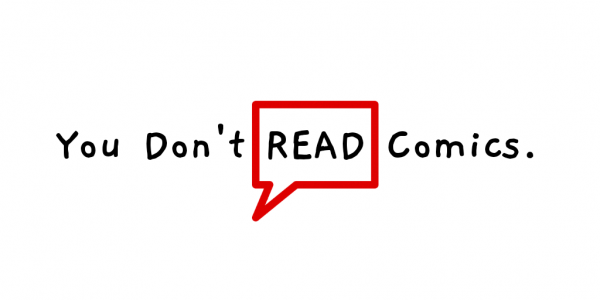Dejah Thoris #4 // Review
A young princess of Mars makes contact with a species of humanoids on a tiny island. They’re kangaroo people. They’re very skilled warriors. The princess has come seeking aid. Will the Kangaroo Men trust her? The answer lies in Dejah Thoris #4. Writer Chuck Brown and artist Emiliana Pinna advance Thoris’s current series into familiarly pulpy territory as Edgar Rice Burroughs’s beloved character makes her way through another very dangerous situation. Brown and Pinna do a solidly respectable job of making silly, pulpy early 20th-century sci-fi concepts seem serious and appealing, but the action doesn’t hit the page with the explosive impact it might need to make a strong impression.
Dejah Thoris and her companions have made it to the Island of Ompt. They’re on lionback, moving through the marshes, when they encounter the Goolians: a race that is human from the waist up, but kangaroo from the waist down. The culture is a bit different from what Dejah Thoris may be familiar with, but it’s understandable. The Goolians are a tiny island culture that is cut off from the rest of the world. Dejah Thoris is going to have to reach out to the species tactfully if she is to gain the trust of the Kangaroo Men of Mars.
Brown runs an encounter between Dejah Thoris and the Goolians that is heavily bogged down in backstory and politics. With things being as urgent as they are, the plot would seem to require more of a quick and intense kind of action driving the interaction between Dejah and the Goolians. Brown has little trouble moving things forward on his own time, but the action seems to inhabit its own corner of the script while the drama inhabits another. It would be much more satisfying if the two were a bit more interrelated.
Pinna renders the Goolians as impressively heroic-looking people. Given the right momentum, they could look remarkably formidable and acrobatic in Pinna’s hands. As it is, though, the art never really engages the action in a way that allows for the kind of powerful bursts of action that would really amplify the script. The world of Mars looks every bit as strange and wondrous as it should, but Burroughs’s breathtaking sense of the fantastic seems just beyond the panel for Pinna. There ARE, however, moments of respectably emotional drama that occasionally strike the page.
Brown and Pinna capably frame the story of a young Dejah Thoris running into the Goolians for one of her first times. The tension and intensity of the encounter could have (and should have) been a lot more powerful than Brown and Pinna are managing in the fourth issue of the current series. Writer and artist have plenty of time to catch up with their own momentum next month in the fifth issue of the series. There’s nothing specifically wrong with what they’re doing--it just lacks the explosive sense of adventure that would really propel it across the page.










